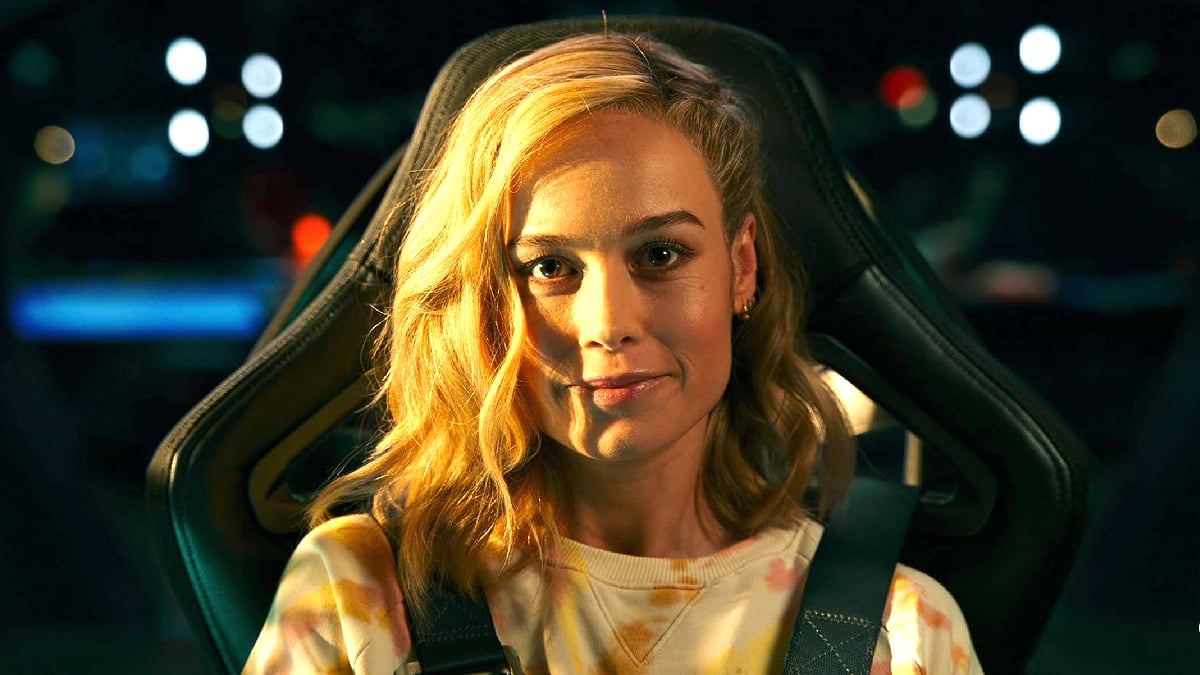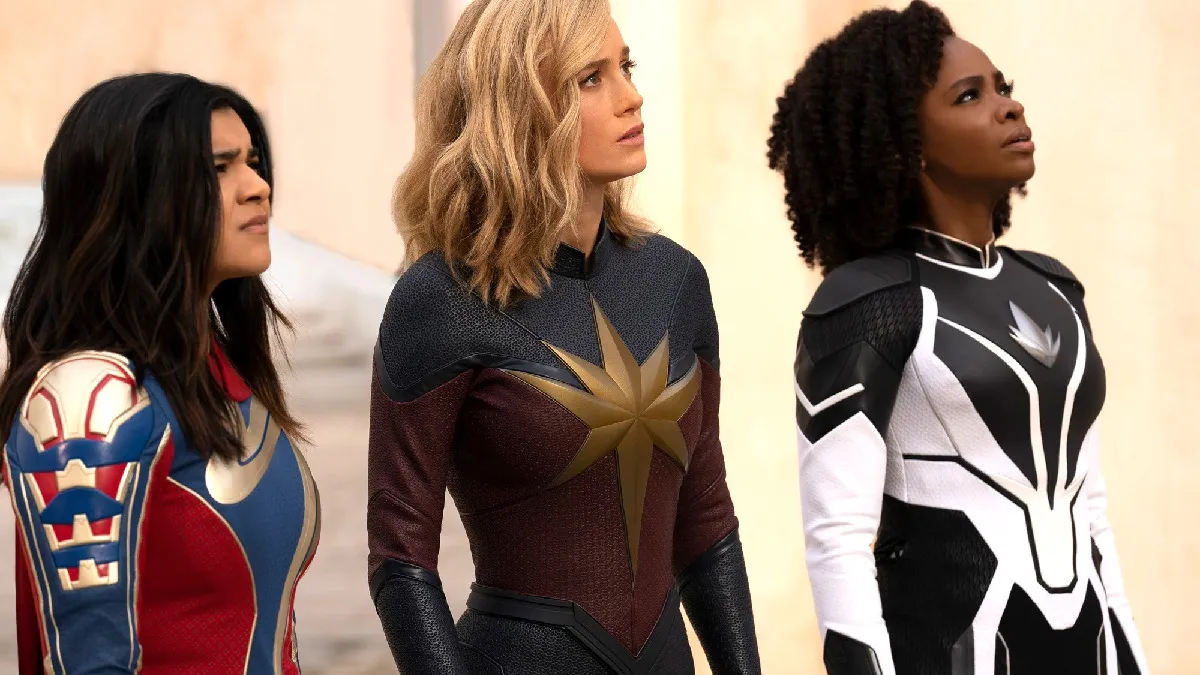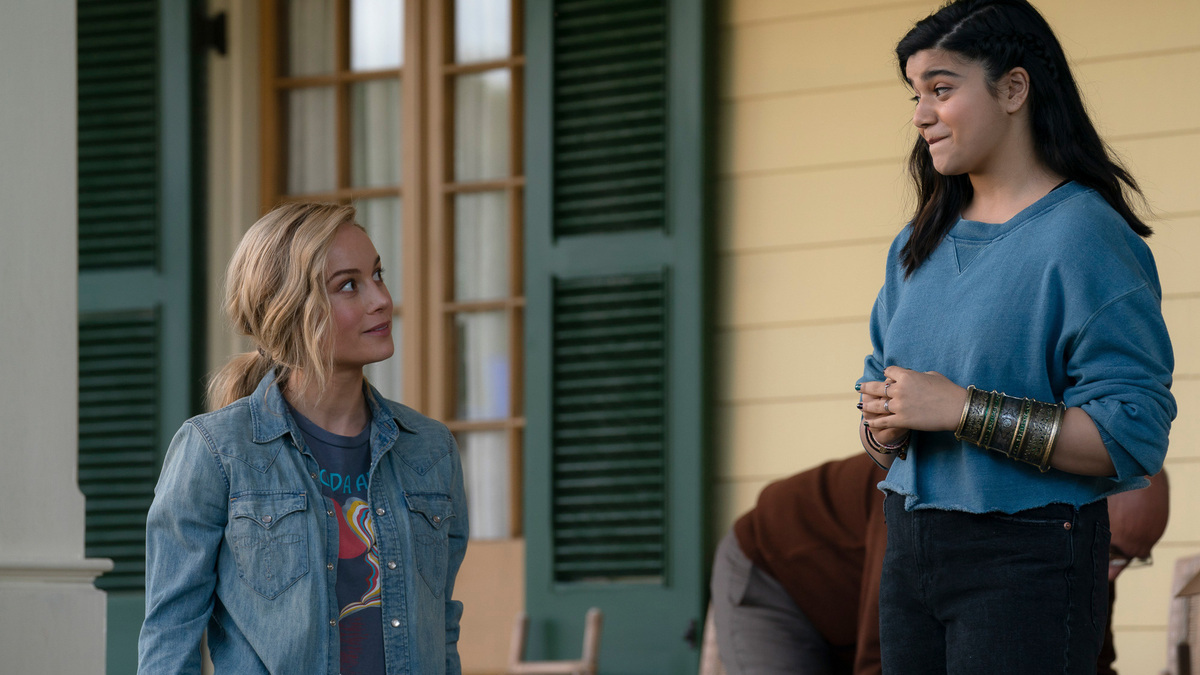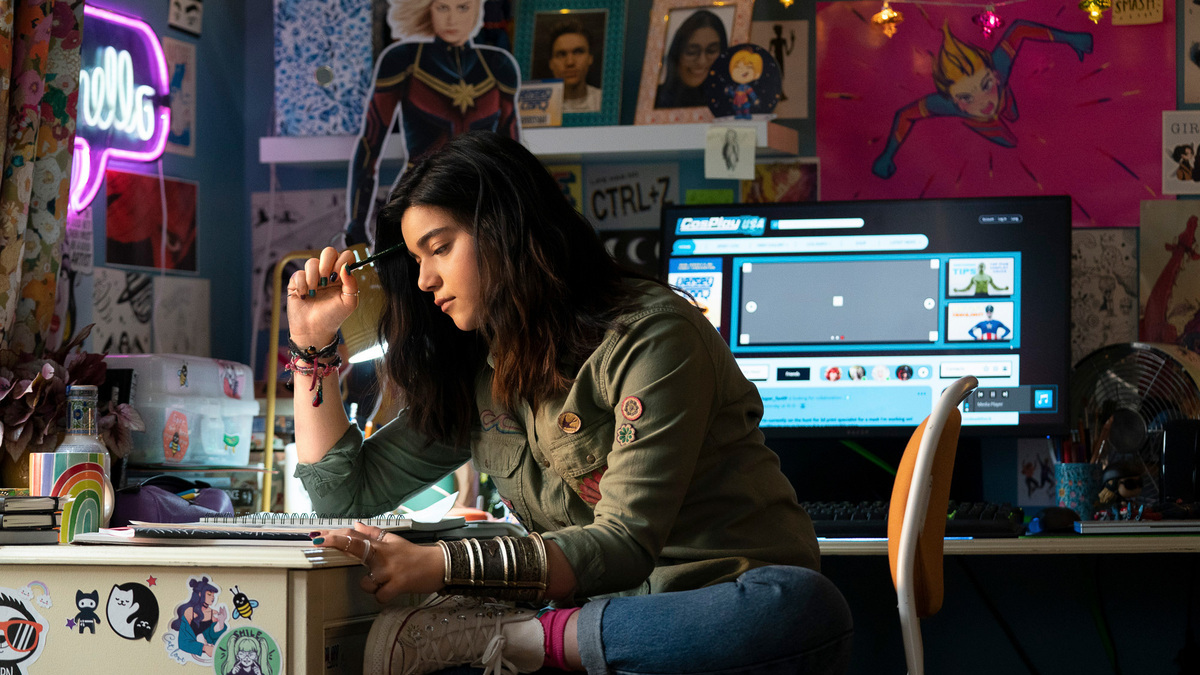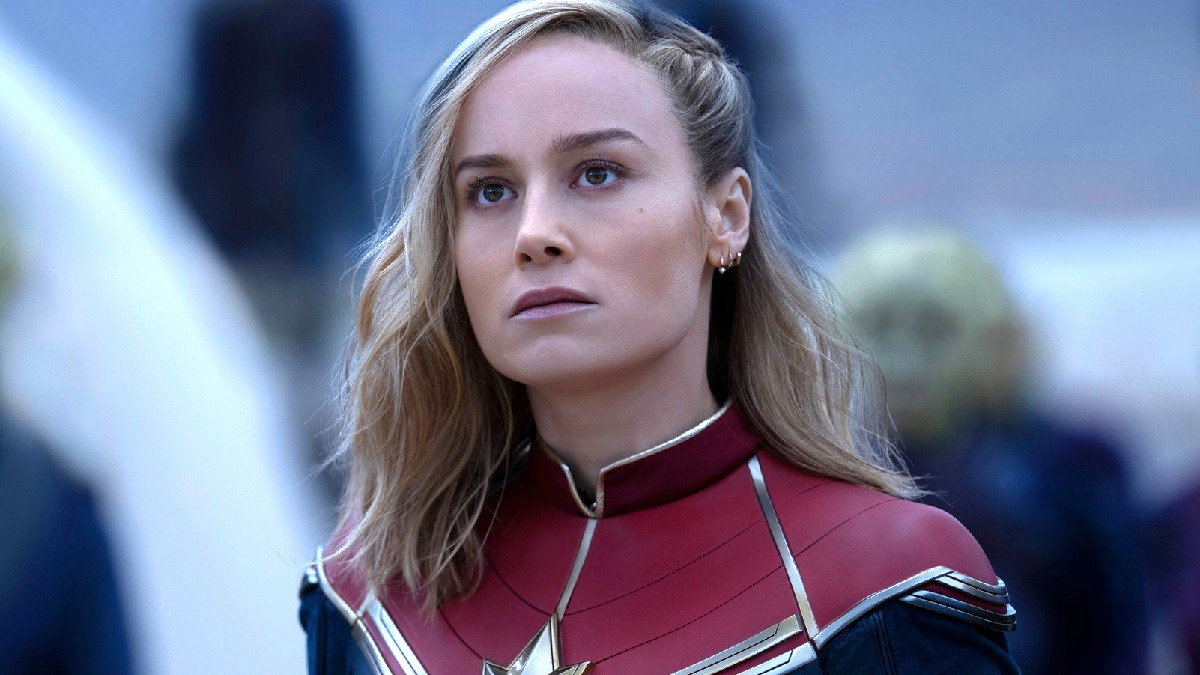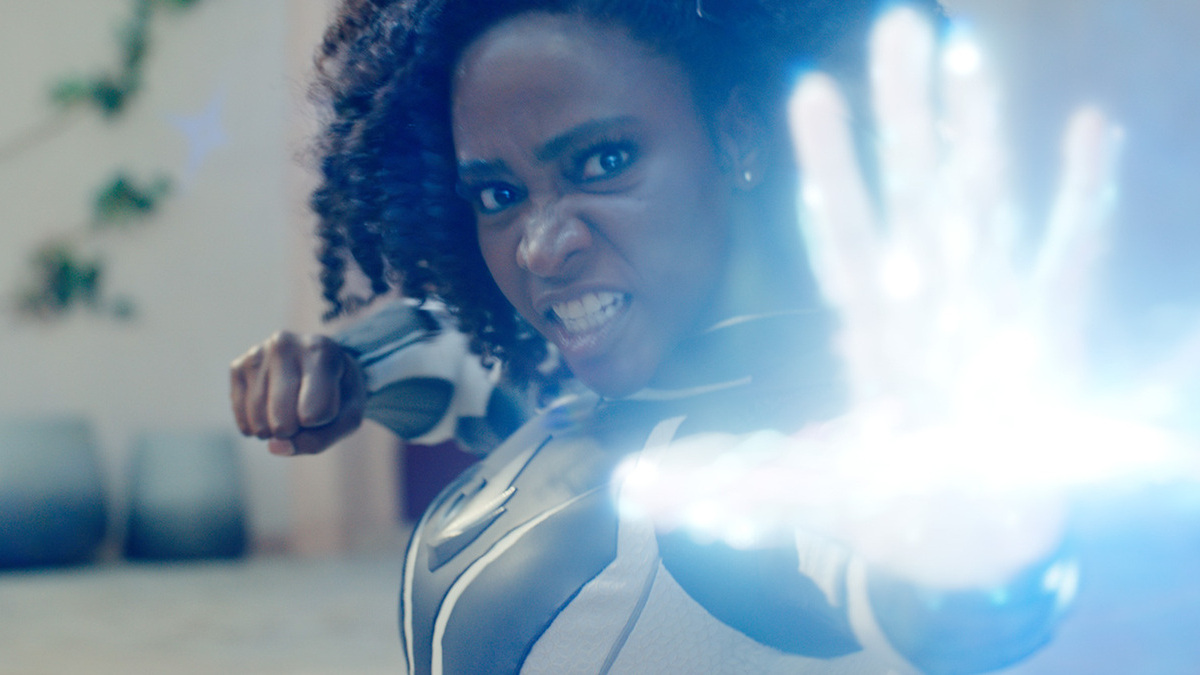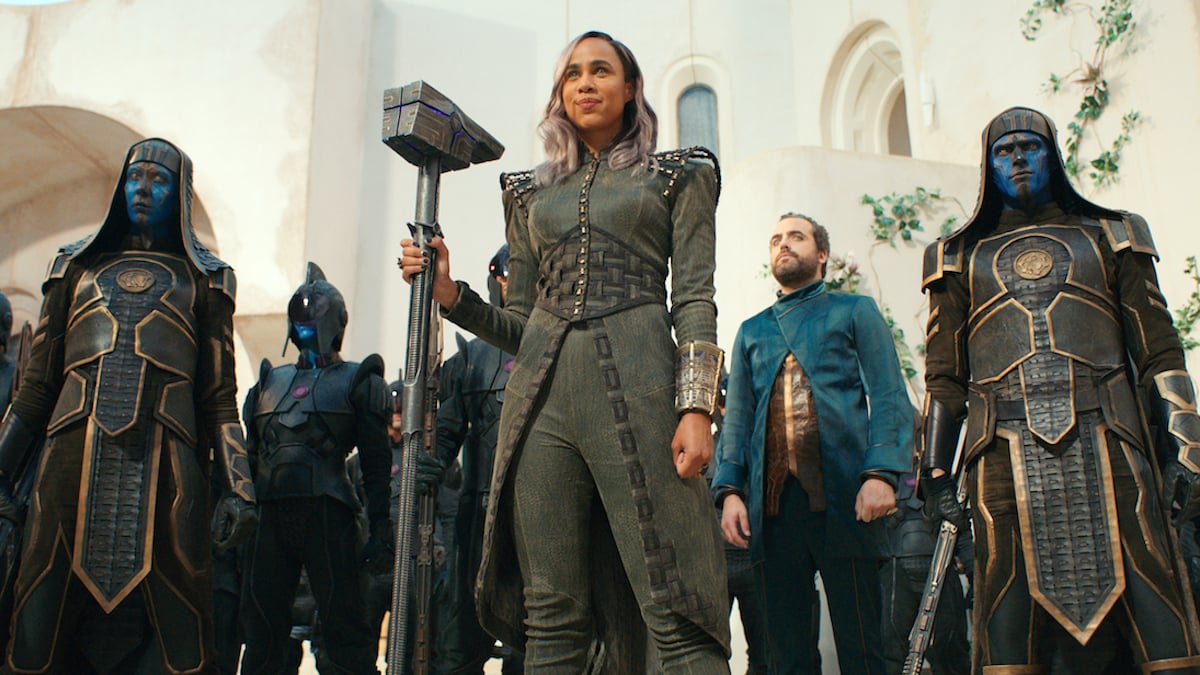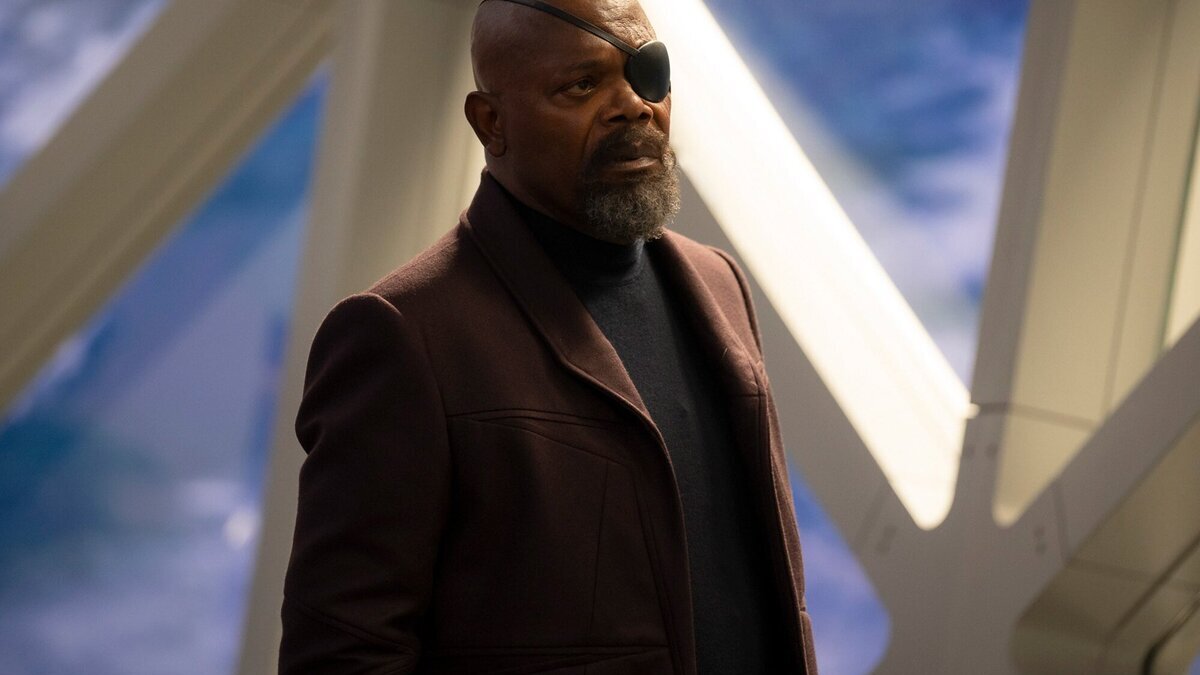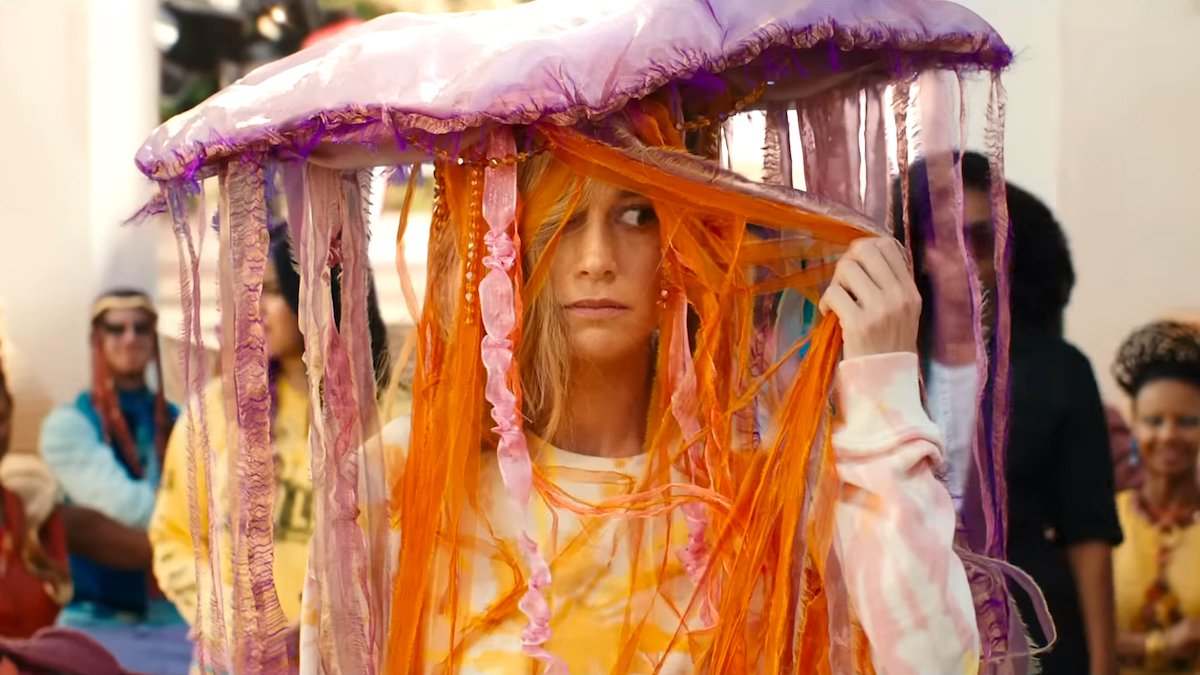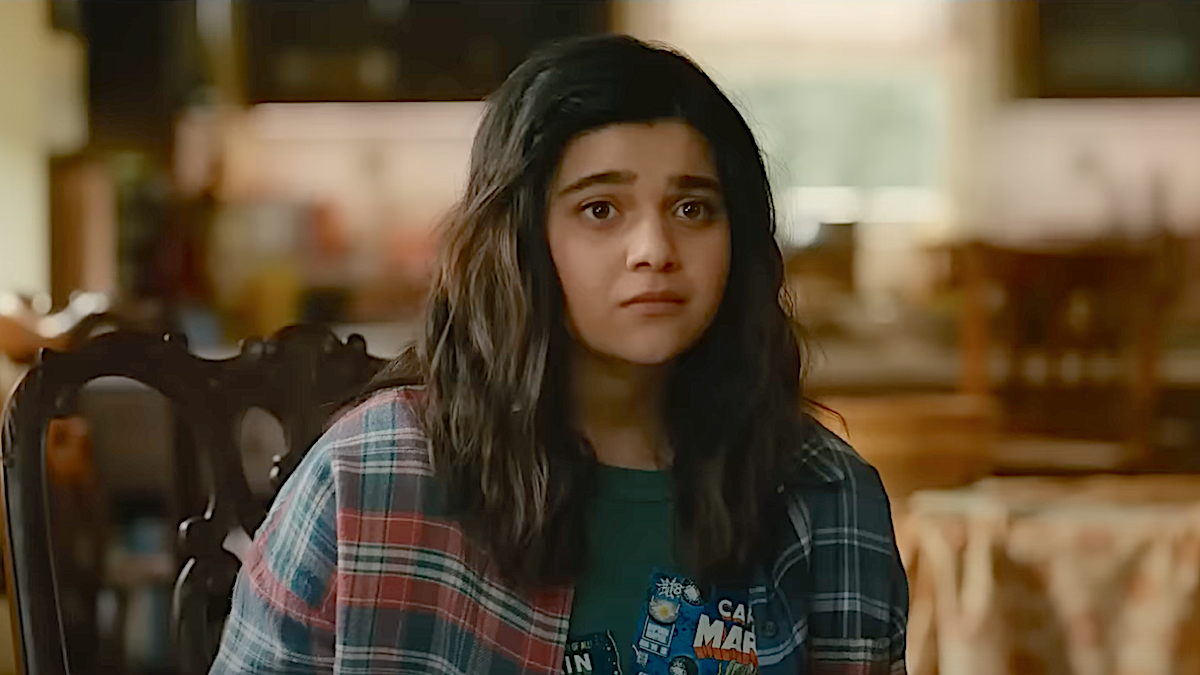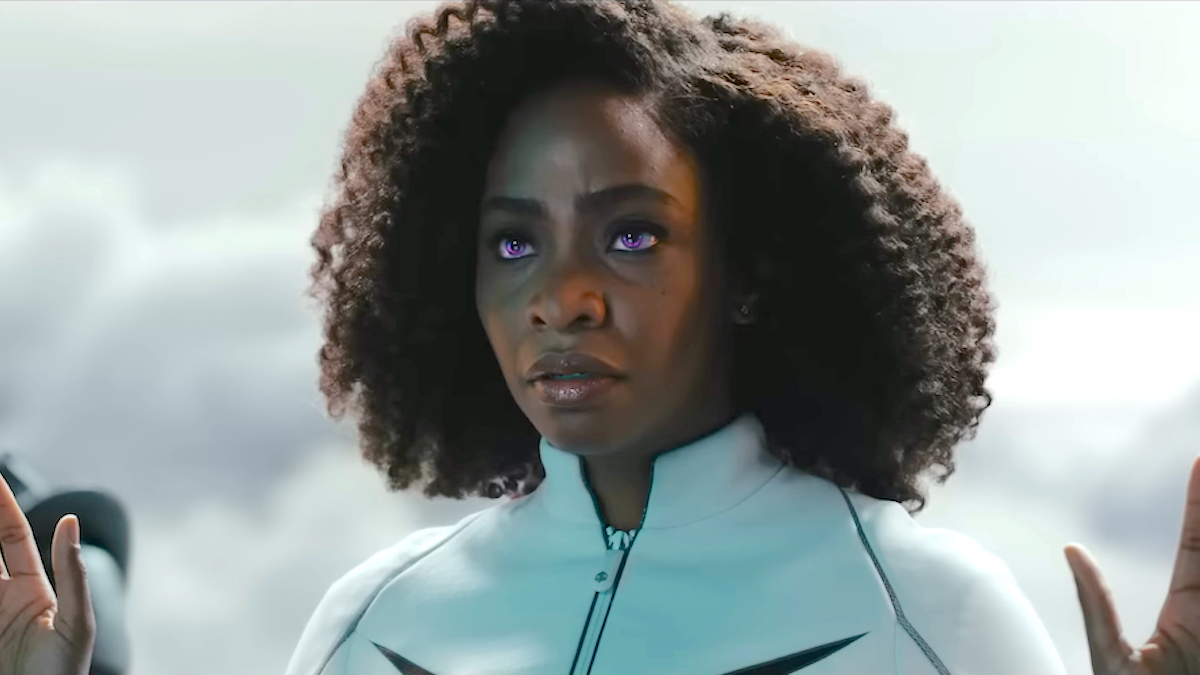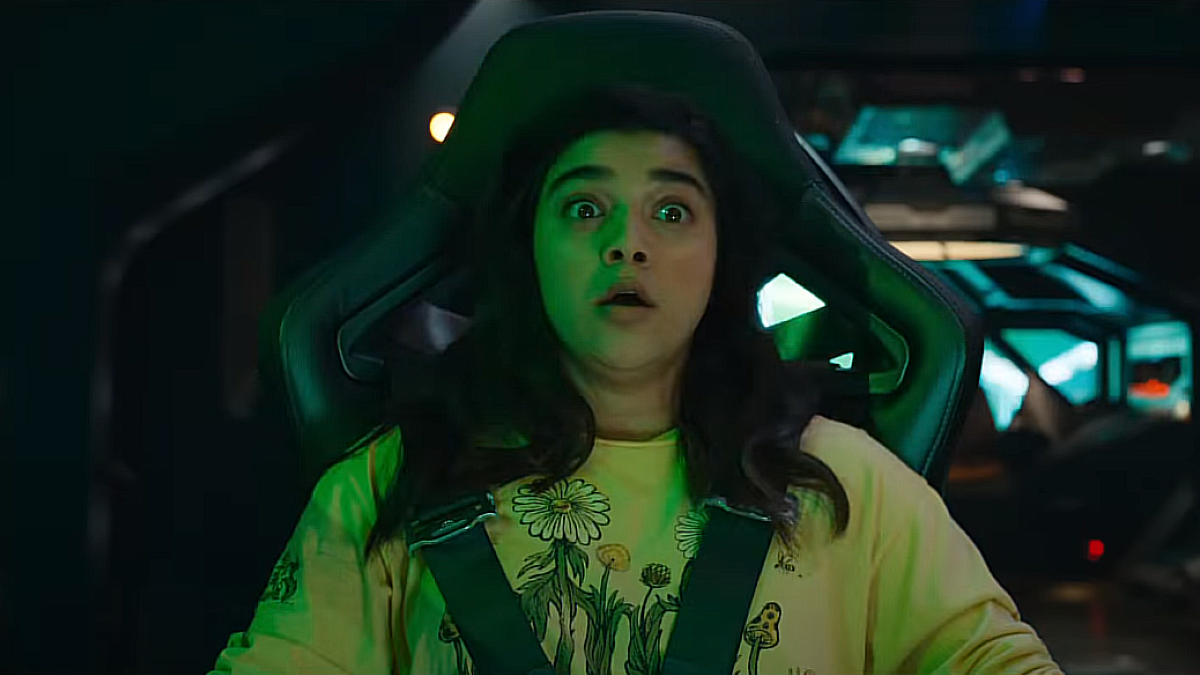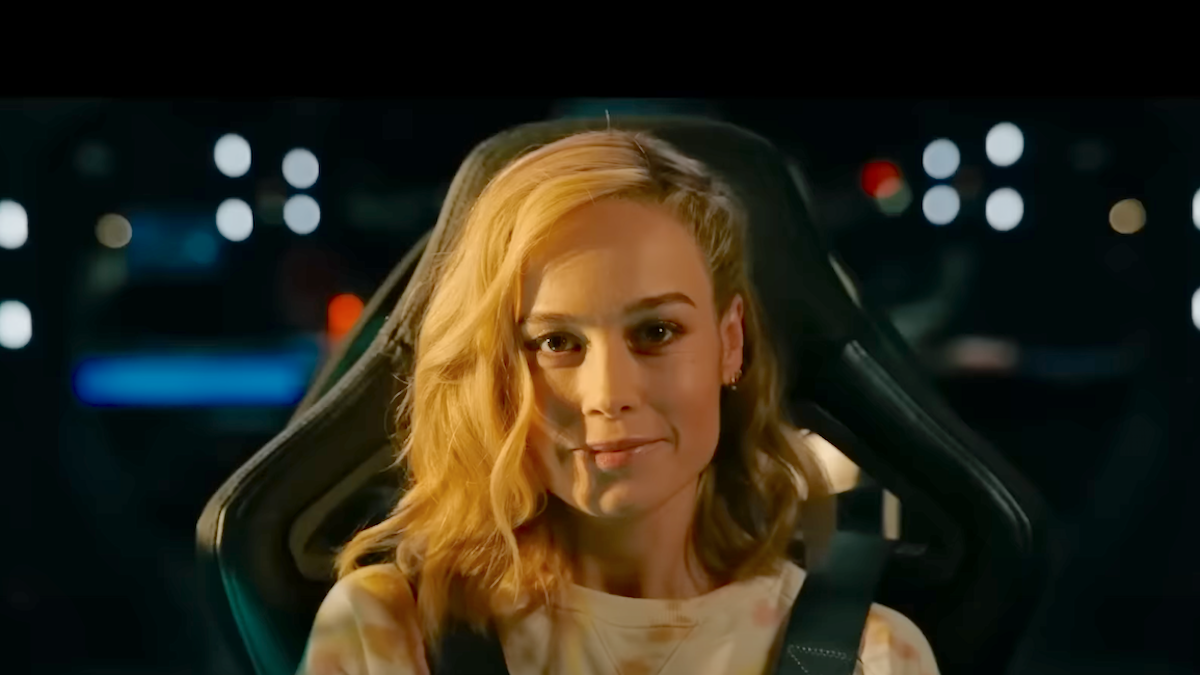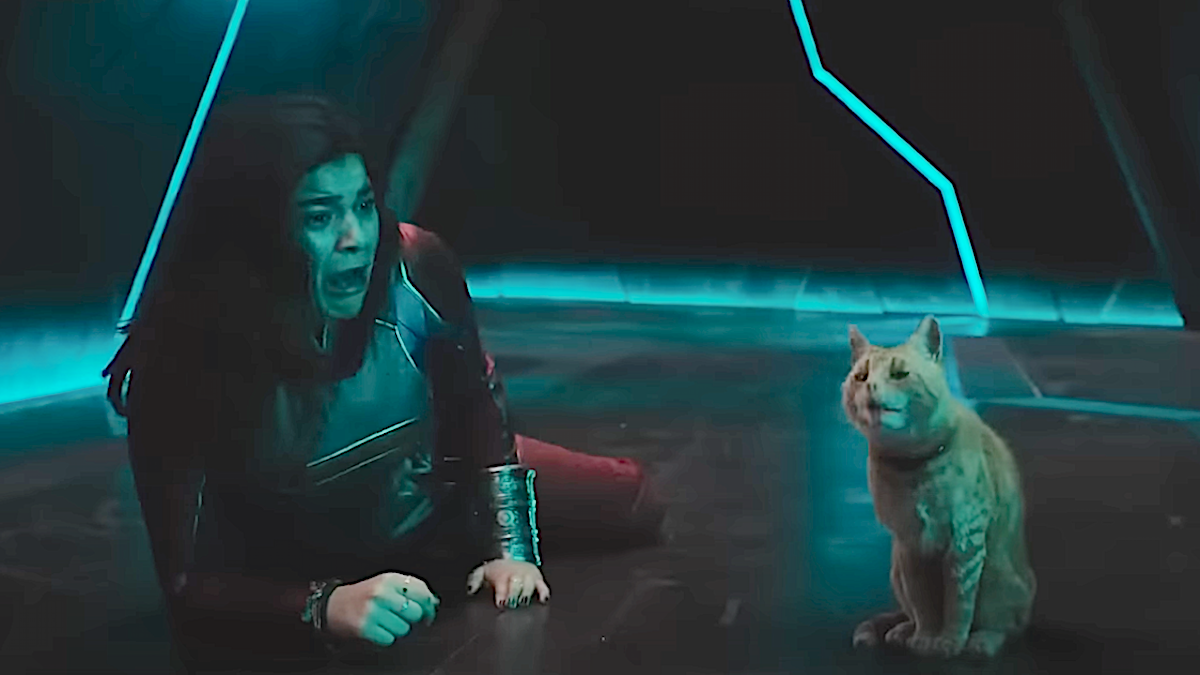We’ve been comfortably nestled in the era of the superhero for a good few decades now thanks in large part to Marvel’s near-ceaseless stream of MCU releases. Starting with 2008’s Iron Man, we’ve seen a new Marvel hero hit the big screen nearly every year since.
In 2019, Captain Marvel hit screens as the first Marvel solo film with a female lead at its helm. It introduced Brie Larson as Carol Danvers and blew audiences away with its focus on a powerful and capable female character, with absolutely zero hints of romance throughout the entire film’s runtime. It was a definitive and honestly risky move by Marvel, but it paid off.
It also led to a surge in questions about the character, particularly in light of the romance-less first film. Carol’s badass, take-charge attitude, paired with shorn locks in Avengers: Endgame and comments from Larson, prompted theories that the character may be one of the MCU’s first LGBTQ+ headliners. Add to this her lack of initial romance and many fans decided on the spot that Carol is a lesbian icon, full stop.
This isn’t necessarily true, but it’s also hard to definitively argue with. While Carol Danvers is not canonically gay within Marvel Comics canon, the character we’ve seen adapted to the big screen might be. Larson herself has made a big push for more diversity in the franchise and has made numerous comments about potential lesbian relationships in future movies. This could mean the theories are correct and The Marvels will unveil the MCU’s first front-and-center character from the LGBTQ+ community.
Brie Larson’s comments
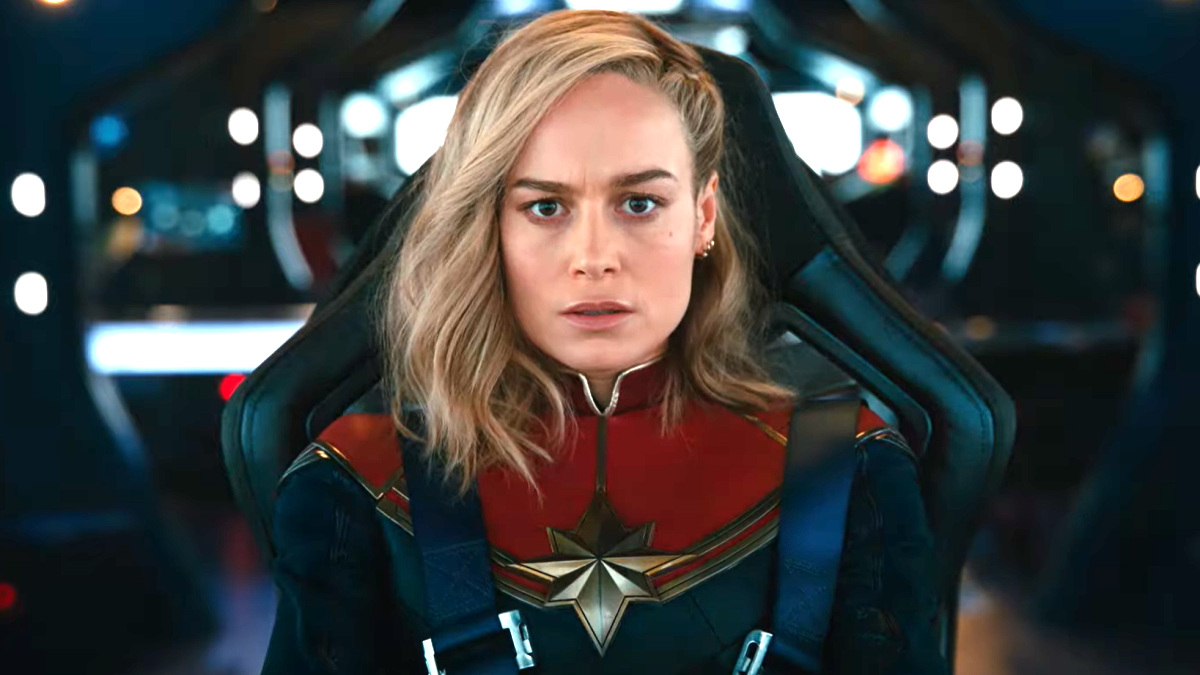
Larson has long been an advocate of LGBTQ+ rights and has openly campaigned for better representation in film. She made a big push for more gay heroes to appear in the MCU and seems to have even suggested her own character be made canonically gay. In an interview with Variety, she said that she thinks representation needs to “move faster.” After the interviewer, Marc Malkin, brought up that he believed he’d never see an LGBTQ+ superhero on screen, Larson expressed disappointment.
“That breaks my heart to hear that, because there’s no reason,” she said. “I don’t understand how you could think that a certain type of person isn’t allowed to be a superhero. So to me it’s like, we gotta move faster. But I’m always wanting to move faster with this stuff.”
Larson has also hinted toward her own sexuality on several occasions, whipping the gay community into a frenzy but rarely directly addressing how she identifies. This has led to rumors that she is gay, and further spurred theories that Captain Marvel will likewise prefer female company. She has yet to definitively confirm that she is a lesbian, however, and even if she was, it wouldn’t guarantee that her character would reflect this real-world coming out.
Regardless, Larson has driven much of the conversation about LGBTQ+ representation, particularly in Marvel movies. She would be an excellent pick for a lesbian character, between her status as — at least — an ally, and her character’s position in the MCU. There are some complicated optics that may need to be navigated, like making sure people realize that just because she’s a strong, independent boss bitch doesn’t mean she has to be gay, but, if handled carefully, she could be the perfect fit.
Is Captain Marvel gay?
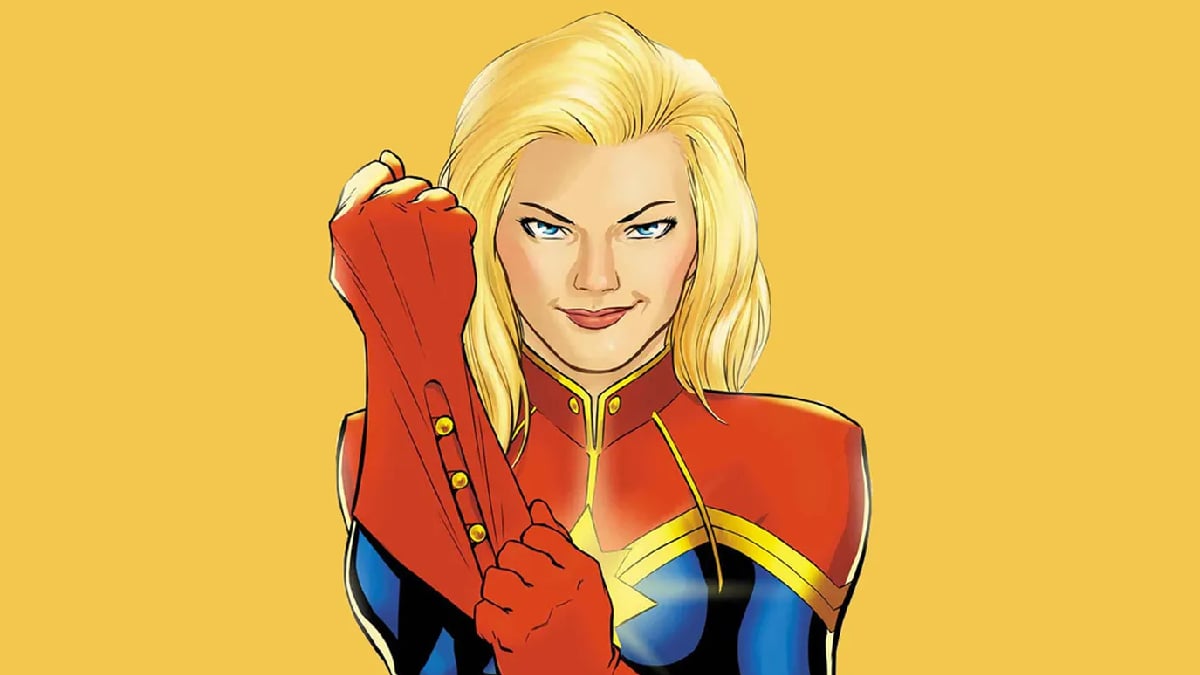
All of that being said, making Carol Danvers gay in the MCU would be deviating from the lore established in Marvel comics. This wouldn’t necessarily be strange for the MCU, which has often created its own version of characters, their backgrounds, and their overall stories, but it is of note. While there is a version of Captain Marvel that is gay, it is not Carol Danvers. Phyla-Vell had a stint as Captain Marvel, among other hero monikers, and is canonically lesbian. Many fans hoped to see her appear in an MCU release, but as of yet, she is not the focus of the story. Instead, we got Carol.
In the comics, Carol dates a number of prominent male characters. She’s been known to enjoy the company of everyone’s favorite webslinger himself, Peter Parker, as well as James Rhodes, aka Rhodey, and even Tony Stark. One of her earliest relationships was with the original Captain Marvel, Mar-Vell (a man), but often she appears in comics as a classic career woman. Relationships are rarely at the forefront of her mind, and while some of her stories do highlight her love interests, Carol has a tendency to carry her storylines without the need for a romantic addition.
Should the MCU make Carol Danvers gay?
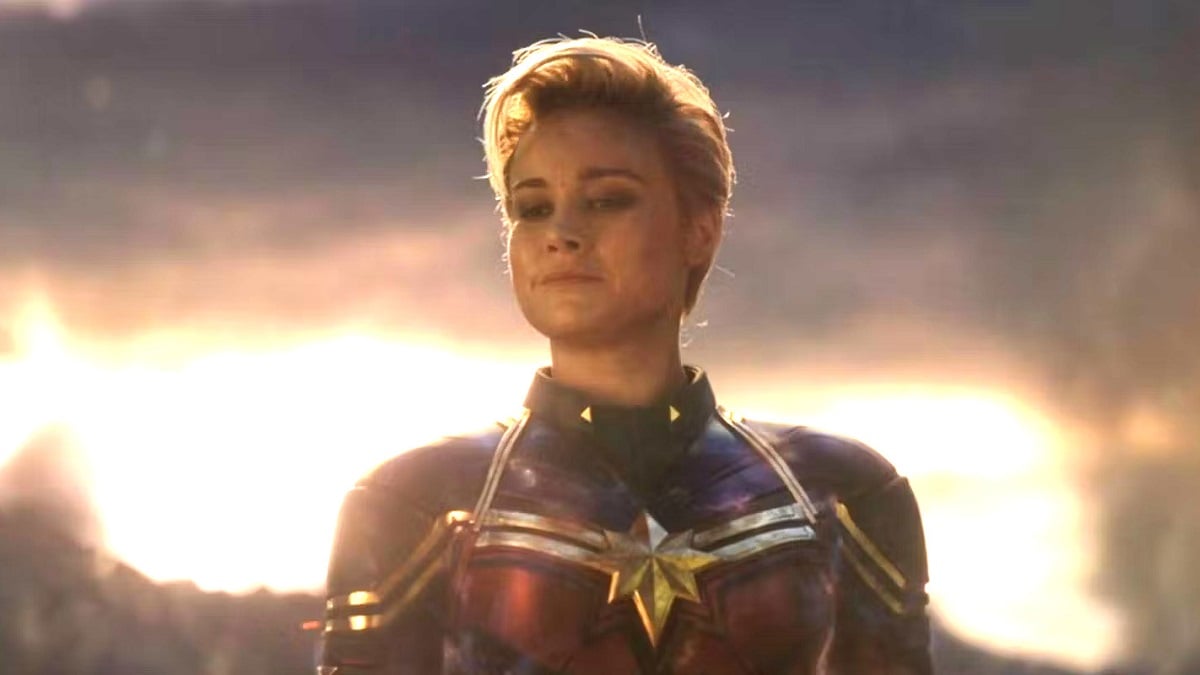
If the MCU were to choose ⏤ instead of making Carol gay ⏤ to simply stick with this theme, it would also mean a lot for representation. As noted above, there are a few problematic optics with making Captain Marvel the first solo, primary, heavy-hitting character to come out as gay. The main one is simply this: she fits too many stereotypes. She had classic lesbian hair in Endgame, she’s strong and independent, she’s a military woman — the list goes on.
The thing is, not all lesbians fit into a box, and presenting a somewhat old-fashioned idea of what lesbians are could set the MCU back a bit. They’ve missed the mark on LGBTQ+ representation quite a few times already and it’s high time they got it right. While Carol may present the perfect opportunity for this, they could also badly bungle her character in attempting to inject better representation into her films.
Larson certainly won the diversity battle with The Marvels, even if it wasn’t in the way we expected. The flick may not serve as the official unveiling of the MCU’s first major gay character, but it will certainly boast more representation than many of the superhero flicks that came before. The film features Larson alongside Teyonah Parris as Monica Rambeau and Iman Vellani as Kamala Khan, and takes its diverse lineup a step further by including Zawe Ashton as Dar-Benn. Its a far cry from the largely whitewashed days of the franchise’s origin, and could be the next step toward better LGBTQ+ representations in Marvel’s future.
Whether she becomes the first headlining lesbian in the MCU or remains relationship-less, the character of Captain Marvel has come to represent the issue of visibility in superhero movies. We have both Brie Larson and the team at Marvel Studios to thank for this, and can only hope that they will continue to have an open and nuanced conversation about inclusion and representation in the future. And, whenever we do finally get that major gay hero, we hope that Marvel manages to treat them with the care and respect they deserve.

